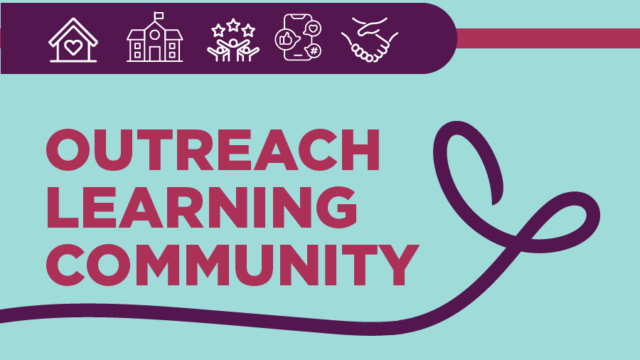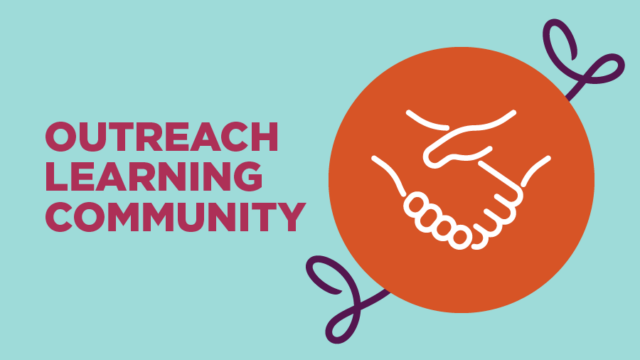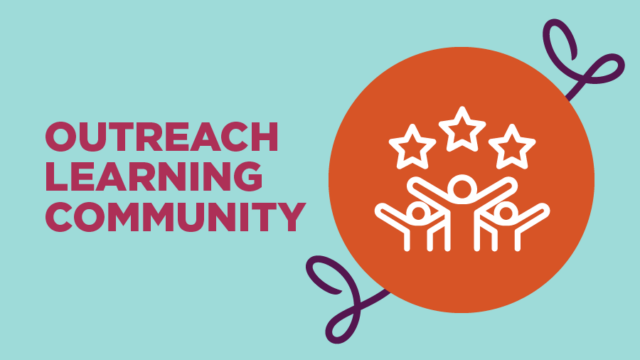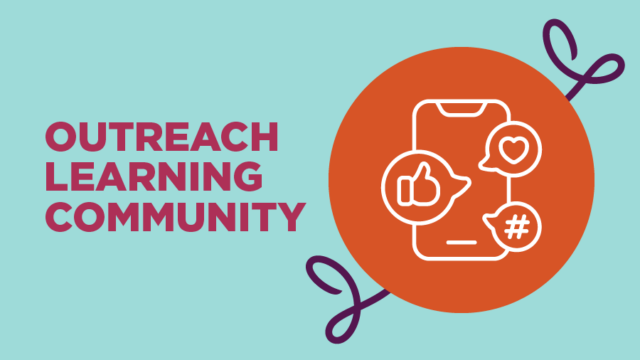



Key takeaways from the fourth of five sessions for social service professionals who want to improve outreach to kin caregivers
Expert: Dr. Ali Caliendo is the founder and executive director of Foster Kinship in Nevada. Foster Kinship is a nonprofit started 15 years ago as a grassroots movement to advocate for equity for children in kinship families. It now serves the entire state of Nevada. Ali was Foster Kinship’s only employee for a time, and social media was a primary way to reach families right away. Since then, the organization has grown and worked to build a presence on any social media platform where they might find and engage families.
Why This Topic Is Important: Agencies and organizations can use social media to connect with caregivers and to provide the larger community with information about their program’s mission and activities.
How to Develop a Social Media Presence
- Understand which social media platforms your target audience is most likely to use. Identify your audiences, including caregivers and community partners, and think specifically about your goals in engaging each of them. Your choice of platform (Facebook, Instagram, TikTok, etc.) depends on the audience you want to reach.
- Try different approaches on social media to increase the likelihood of broad engagement. Craft posts that will appeal to different audiences and collect data on what works. For example, Foster Kinship posts twice a day, one video/reel and one “print” post, often text with a link. They create videos in TikTok (which includes an easy interface for recording), then share them as a story on Facebook and as a reel on Instagram. Young staff members are often invaluable in understanding engagement and how best to use these tools.
- Make sure multiple staff members have access to platforms as administrators (also known as admins) and are trained in how to craft posts, upload to various platforms, and monitor engagement. This cross-training ensures continuity in case of staff absences or departures. It may also be helpful to create an organizational policy of changing passwords if an admin leaves the organization.
Platforms
- Advantages
- Many caregivers already access Facebook, which is useful for reaching out to a broad audience, announcing upcoming events, and getting community support for the organization’s efforts. Paid Facebook ads are a great (and inexpensive) way to reach families and can be targeted to improve their chances of reaching the right people. For example, Foster Kinship has used zip codes to target and engage families in the areas they serve.
- Things to Think About
- Many organizations find getting community support and donations through a general Facebook page to be challenging; social media does not replace personal connections in securing partnerships and donations. Consider experimenting with a private group for donors, volunteers, and community members. Ali’s organization calls their private group Foster Kinship Champions.
- Search engine optimization (SEO) tags that help users find your organization’s page should include language kin caregivers would use in their searches, such as “grandma raising grandkids,” instead of, or in addition to, language used by professionals, such as “kinship care” and “grandfamilies.”
- Ali noted that public posts on Foster Kinship’s Facebook page generate many comments from kin caregivers hungry for information about their specific situation: “What about my grandchild?” “How do I get what I need right now?” These personal requests can be time-consuming for an organization to answer, as rules and resources vary so widely from state to state. It can also be difficult for an organization to address incorrect or confusing information supplied in the comments. For these reasons, Foster Kinship operates a private Facebook group for Nevada residents, described below.
Private Facebook Group (for Kin Caregivers)
- Advantages
- Private groups can serve as an extension of your programming and can be an effective way to use social media to engage caregivers. Admins can feature content they believe is important for families to see.
- A private group is a place where caregivers get their questions answered and is a container for caregivers to provide peer support and to trade resources and information. Ali explains: “If I put a link out, let’s say for a holiday event, ‘We need a hundred families for a Thanksgiving box,’ we’ll get that resource distributed within 15 minutes […]. We don’t put stuff like that up on our public page. It’s definitely reserved for the families only, so they know to check it, and they get tons of extra stuff if they do.”
“I asked the Facebook group, ‘Would you be interested in coming in person after dropping the kids off at school?’ and got a ton of responses. This flier announces the support group that we started as a result.”
– Ali Caliendo
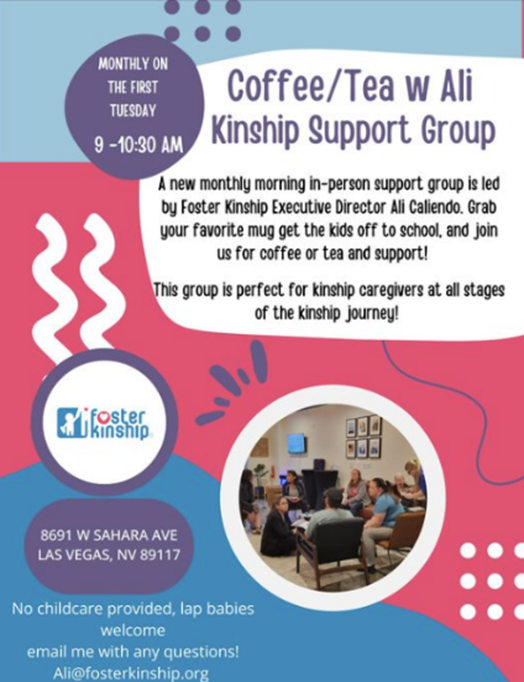
- Things to Think About
- Membership is by invitation or request and should be for kin caregivers only. The intake and assessment process can include a step for joining the group. At Foster Kinship, if a kin caregiver asks to join a group without an intake assessment, they must receive a code word from an admin to get access.
- Private Facebook groups can provide peer support for grandfamily and kin caregivers at all ages and stages of kinship family life. Caregivers who experience a change in their situation or status often become excellent peer mentors, with wisdom to share with newer members. Admins should reserve the right to remove participants who are hostile.
- To make sure the group is a safe place for candid conversations, only kin caregivers and admins should be allowed access. Employees of child welfare agencies, parents of children or youth who are living in kinship families, and anyone else who is not a kin caregiver should not be allowed to join. The goal is to provide peer support and a bridge to government and community services, not enforcement or oversight.
- A group like this only works if there is someone who can monitor the activity to ensure that there are accurate and appropriate responses based on a caregiver’s status, questions, or need. Missing or incorrect information can be damaging and lead to off-topic conversations. Foster Kinship limits group membership to kin caregivers who reside in Nevada so that they can provide state-specific information and monitor the comments for accuracy, correcting as needed.
- Ali uses her own name to respond to social media posts. She says, “I think it’s important for families to know they’re talking to a real person. We understand it’s not always possible, especially for social workers to go in and engage with clients on social media. We make sure that nobody feels forced to be on social media if that’s not something that they want to do.”
- Advantage
- Instagram seems to be a better marketing tool than Facebook, with more responsiveness from donors and community partners. Ali says, “We know we’re going to have better luck asking for diaper donations on Instagram than on the public Facebook page.”
- Thing to Think About
- Content developed for Instagram can be cross-posted on different platforms (like Facebook), which allows you to use the same post to target different audiences.
TikTok
- Advantage
- TikTok is useful for its good in-app editing tool, which can be used to build videos that can be exported to Facebook and Instagram.
- Things to Think About
- Data shows that TikTok users skew younger, though increasingly this platform is becoming more popular across all age ranges.
- TikTok is a national platform, reaching kinship families across the country, so it is not an ideal tool to target a specific statewide or regional audience. If the goal is overall awareness-building of the issues faced by kinship families, TikTok can be an effective tool.
Online, But Not Social Media
- Newsletters
Newsletters are a great way to engage kin caregivers. They can be useful for notifying families about upcoming events; sharing stories and news of the local kinship community; and informing families about articles, legislation, and issues pertaining to kinship families. Ali shares that Foster Kinship’s intake and assessment process includes an invitation to sign up for their newsletter; 90% of caregivers say yes.- Include in the publication a letter from the director and invite different departments to provide information.
- There are a number of email newsletter services, including Constant Contact and Mail Chimp. Canva and other relatively inexpensive design platforms make it possible for you to design graphics for your newsletter.
- Foster Kinship is weighing whether to continue sending a monthly update or to send out briefer, more frequent bulletins targeted to specific issues.
- Resource Locator Tool
Foster Kinship offers a unique self-service, web-based tool for kinship families in Nevada. Developed in-house, it offers families an opportunity to search for resources anonymously, 24/7. It can be customized for different jurisdictions, and organizations in Utah, South Carolina, and Minnesota are currently developing it for use by kin caregivers in their states. It could also be adapted for use in smaller geographic areas, like a specific county or region.
Users begin by answering a series of questions that connect them with resources tailored to their situation. Once they answer all the questions, they get information that is customized to them based on their zip code, age, and relationship to child welfare. No data is saved.
Ali: “This tool can spit out an infinite number of combinations. And I think what I realized when I started Foster Kinship was it’s very challenging to assess a family accurately and then to give them all the resources based on their unique situation […]. Programming the tool so it was ‘mistake-proof’ was really useful. And now it’s just available for any caregiver if they choose to use it. If they’re too afraid to call an organization like Foster Kinship, we know they’re still able to get information about what they’re eligible for and where to go find it.”
You can find the Resource Locator Tool at www.fosterkinship.org/resource-locator/. For more information, contact Ali at ali@fosterkinship.org.
